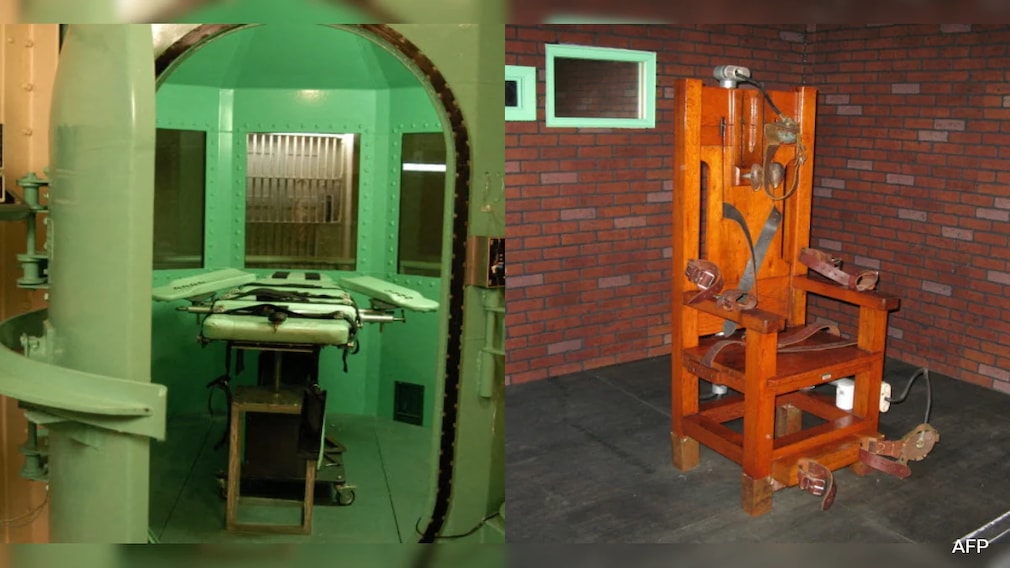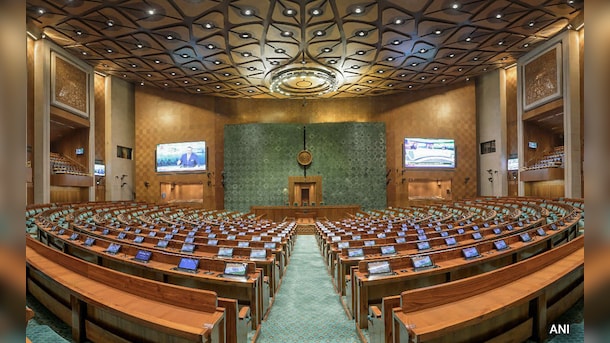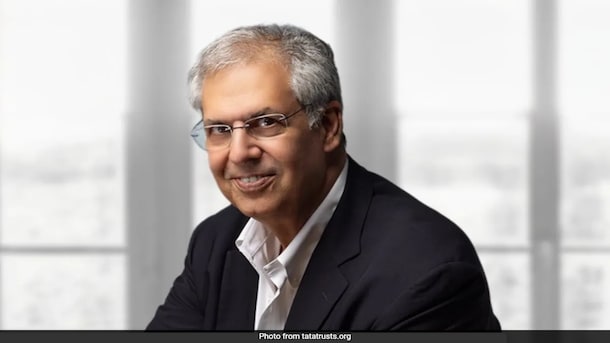As India Sticks To Death By Hanging, A Look At Execution Methods Across The World
Close to three-quarters of the world, including almost all developed countries, have abolished capital punishment either in law or in practice, but 55 nations still retain and implement the death penalty.

The Supreme Court is listening to a proposal to give convicts on death row an option of choosing lethal injection as an alternative to death by hanging as a mode of execution. On Wednesday, the top court made oral observations expressing its displeasure with the government's apparent unwillingness to evolve on the issue, after the Centre indicated that offering such an option might not be feasible.
While over 70 per cent of the world has abolished capital punishment in law or practice, the death penalty remains legal in 55 countries, including India, the US and China, according to a 2022 report by Amnesty International.
How Many People Are Executed Every Year?
Amnesty International recorded 1,153 executions in 2023, an increase of 31 per cent from the 883 known executions in 2022. It was the highest figure recorded by Amnesty International since the exceptionally high number of 1,634 in 2015.
However, the report noted that known totals did not include the thousands of people believed to have been executed in China, which remained the world's leading executioner in 2023.
There was a 20 per cent increase in the number of death sentences handed out globally in 2023, taking the total to 2,428.
Which Countries Still Use The Death Penalty?
Close to three-quarters of the world, including almost all developed countries, have abolished capital punishment either in law or in practice, but 55 nations still retain and implement the death penalty. The exceptions include the United States, Japan, Taiwan, and Singapore. Additionally, capital punishment is also carried out in China, India, and most Islamic states.
Apart from China, Iran, Saudi Arabia, Egypt, and the US executed the most, according to Amnesty's data.
Amnesty International also noted that North Korea was "likely to be using the death penalty at a sustained rate," but could not independently verify the claim.
Which Countries Outlawed Capital Punishment?
Amnesty's data show the death penalty is not used at all in 112 countries. The practice was fully abolished by four countries in 2024-- Kazakhstan, Papua New Guinea, Sierra Leone and the Central African Republic.
Two other nations, Equatorial Guinea and Zambia, have said they would only be used for the most serious crimes. In April 2023, the Malaysian parliament also voted to remove the mandatory death penalty for 11 serious crimes, including murder and terrorism.
In July 2023, Ghana's parliament voted to abolish the death penalty altogether.
How Do Countries Carry Out The Death Penalty?
Hanging, shooting, electrocution, lethal injection and beheading remain the most common methods of execution.
The lethal injection generally consists of three chemicals -- sodium pentotal (an anaesthetic), pancuronium bromide (used to paralyse the prisoner) and potassium chloride (used to stop the heart) – and is widely used by countries including China, Vietnam and the US.
The US also commonly uses electrocution to carry out death sentences. To carry out electrocution, prisoners are shaved and strapped to a chair. Then, a metal skullcap-shaped electrode is attached to their scalp and forehead over a sponge moistened with saline.
The prisoner is then blindfolded. A jolt of between 500 and 2000 volts, which lasts for about 30 seconds, is repeatedly administered until the prisoner is declared dead.
Some US states also use nitrogen gas as a method of capital punishment. It induces death by nitrogen hypoxia, which works by depriving the body of oxygen when an inmate is forced to breathe only nitrogen.
Most Asian and African nations, including Afghanistan, Bangladesh, Botswana, India, Iran, Iraq, Japan, Kuwait, Malaysia, Nigeria, Palestine authorities, South Sudan and Sudan, use hanging as a legal method of capital punishment. The 'long drop' is the most commonly used hanging method. In some countries, prisoners are weighed the day before their execution to determine the length of 'drop' necessary to ensure a quick death. If the rope is too long, the inmate could be decapitated, and if it is too short, death by strangulation could take as long as 45 minutes.
Some countries, such as Iran, use cranes to publicly hang the culprits.
Countries including China, Indonesia, North Korea, Saudi Arabia, Somalia, Taiwan and Yemen use shooting squads to execute prisoners.
Execution by firing squad typically involves the prisoner being bound to a chair (sitting) or a pole (standing), with a black hood pulled over their head. Up to 20 feet away, the shooters, usually no less than five of them, aim for the prisoner's heart. If the shooters miss their target, by accident or intention, the prisoner can slowly bleed to death.
As of 2022, only Saudi Arabia is known to use beheading as a form of execution. Beheadings are carried out in public using a sword, usually in a town square or close to a prison. The condemned, who is blindfolded, handcuffed and often given a sedative, typically wears white - as does the executioner.
-
Opinion | Who Moved My Tech?
The business of technology has rewired the very logic of market behaviour, rewarding first movers and creation of dependencies more than even revenue and returns.
-
Opinion | The Story Of RSS And Left: Why One Flourished, And Other Perished
Between Jyoti Basu's lost opportunity and Vajpayee's brief triumph lies the story of modern India - of one movement that adapted its faith to politics, and another that failed to adapt its politics to faith.
-
Opinion | US-China Trade War Has Turned Into A Full-Blown Siege, And India Is Stuck
Beijing's export controls, timed before diplomacy, reveal insecurity more than strength. By weaponising minerals, China has reminded the world why diversification is destiny.
-
Opinion | If Political Parties Fear POSH, The Problem Really Is Something Else
If women in India cannot be safe within the organisations that send them to Parliament and assemblies, the promise of democracy becomes hollow.
-
Opinion | Trump's Gaza Plan: Ushering "Peace for Our Time" In West Asia?
The long-elusive ceasefire is only the opening overture of a fiendishly complicated serial act. Seasoned observers of the region advise taking it with a ladleful of salt.
-
Opinion | The Northeasterner: Indian, Until Someone Needs A Punchline - By Vir Sanghvi
The racism we casually throw at those from the North East is not so different - or any less offensive - from the racism that Indians face in the West. Yet, we remain blind to it.
-
Opinion | The 'Real' Message To Trump And Pak In Taliban Minister's India Visit
To Trump, Taliban has made it clear that it is in no mood to rekindle American presence in Afghanistan. And to Pakistan, it seems to be signalling a newfound independence in its policies and activities.
-
Tata Trusts Infighting Over Board Seats. NDTV Explains What Happened And Why
Tata Trusts owns around 66 per cent of Tata Sons, which is the Tata Group's investments holding company.
-
Opinion | To Just Welcome The 'Immigrant' Is Not The Point - By Shashi Tharoor
Nations have the right to regulate entry, to balance openness with cohesion. But the tone of the current moment suggests something more corrosive - a retreat not just from policy generosity, but from moral imagination.
-
Opinion | 'Pasni' Offer Proves Pak Can Betray Anyone - Even China - For A Deal
China has consistently supported Pakistan - diplomatically, economically, and militarily - even during Islamabad's periods of isolation. Yet, despite this "iron brotherhood", Pakistan's recent moves show that loyalty in Islamabad is negotiable.
-
News Updates
-
Featured
-
More Links
-
Follow Us On










